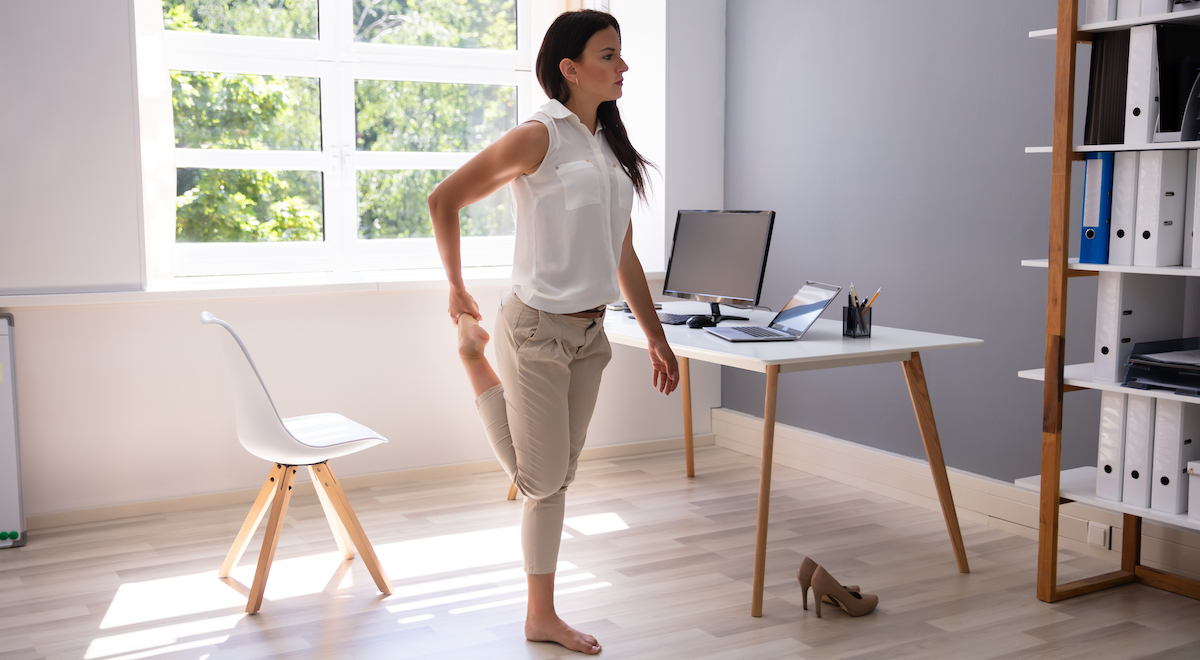How do I beat the 'Afternoon Slump'?

Most of us are probably familiar with afternoon slumps. About 10 minutes after lunch, you start to feel a big sluggish and unproductive – and there are still hours left before you can end your day and chill out. You can be in the middle of your workday, at home looking after the kids or someone who has retired carrying out some chores or activities.
At that point, many of us will put the kettle on to brew up a cuppa or make a coffee. However, there are other, better, ways to get through the slump without the aid of this extra pick-me-up. As mentioned in a previous blog, there’s also the chance that your caffeine boost (especially if it involves strong coffee) in the afternoon might impact on your sleep later that night.
How can I get through an afternoon slump without caffeine?
We’ve put together some tips and suggestions to try and see which works for you. A combination will be more effective than one thing alone.
Eat healthy meals and snacks: At lunchtime, try and stay away from foods that are high in sugar or refined carbohydrates. These spike your blood sugar creating a more energetic feeling initially, but this is followed by an equally low drop, and this causes the slump. Opt for foods that are high in fibre, protein, and healthy fats – including fresh fruit and vegetables. This also applies to breakfasts, which should help you to start the day in a healthy way, so avoid anything with lots of sugar.
Take a break: This is a great way to help ‘reset’ your thought processes, instead of feeling stressed if you experience a creative block or small problem trying to resolve a task, during a slump or disruption in concentration. It doesn’t have to be very long but can give you enough time to clear your head of niggles. If you can, maybe get some fresh air to revitalise you (more on this in the next point).
Move it: Even a little exercise can help boost your energy. This is because exercise releases the ‘feel good’ hormones, known as endorphins. Try the following:
- Stretch at your desk or outside
- Take a quick walk
- Walk up and down some stairs
Stay hydrated: Dehydration can dull your mental processes, so make sure you’re drinking plenty of water throughout the day. The general rule for those of us living in a temperate climate (that includes the UK) is that men should drink about 3.7 litres of fluids each day, whilst women need about 2.7 litres. The majority of this should be water, not tea, coffee or carbonated drinks.
Take a short nap: Not all of us can do this but if you can then try. However, limit the nap to about 30 minutes. Too long a nap is likely to make you feel groggy on waking up and can also impact on your sleep quality at night. If you are at work and have a reasonable lunch break, maybe you could use a few minutes of that for a quick nap. Don’t forget to set an alarm though! A short nap can help to reduce stress, as well as increase alertness and creativity.


How can I prevent an afternoon slump?
Having another caffeine boost is tempting if you are feeling a bit sleepy, however the best way is to prevent tiredness by following the tips above – and ensuring you are getting enough sleep at night. Poor sleep can have a big effect on your work performance, even beyond the sleepiness of an afternoon slump.
For some of us, getting a good night’s sleep can be easier said than done, especially if you’ve had a stressful workday or have been running around after your children to manage their day as well as your own. You might wake up regularly in the night feeling too hot or too cold. However, there are a few simple ways to improve your sleep, which will also help to prevent afternoon slumps.
Bedtime consistency: Try and go to bed at the same time each night and wake up at the same time each morning. If you can do this during weekends and holidays, then this helps to maintain the consistency.
Avoid the snooze button: If you really need those extra few minutes sleep, then only hit that button once and don’t linger in bed. This will help to prevent morning grogginess – also known as sleep inertia.
Exercise: We keep coming back to this in our blogs – and it’s important, even if it means only a brisk 10-minute stroll each day. Activities such as gardening count as well! Exercise such as gentle yoga or swimming are wonderful for keeping us flexible.
Get advice from your doctor: Many people who struggle to sleep on a regular or on-going basis may have an undiagnosed sleep disorder, such as sleep apnoea. Once diagnosed, there are various lifestyle tips and treatments that your doctor can recommend.
Tuck up: Choose natural bedding that’s breathable and temperature regulating, as that will help keep your core body temperature balanced throughout the night. This means you’re a lot less likely to keep waking up feeling too hot or too cold. Our award-winning, 100% British wool filled duvets are individually handcrafted at our Devon workshops, with just the right amount of drape to wrap you in comfort and ease you into blissful slumber. Check out our wool mattress toppers and pillows too!
Prepare for bed: Give yourself enough time to finish each day’s to-do list without having to stay up late. Have a relaxing warm bath or shower to help you wind down.
Switch off and switch off: Turn off the TV and switch off devices at least 30 minutes before bedtime - and keep them out of the bedroom to avoid any distractions.
For further information about our products or to discuss which of our duvets might work best for you, please get in touch with the team and we’ll be happy to go through options with you.
Always consult your doctor or medical professional if you experience ongoing issues with overall fatigue or not being able to sleep.
Ref: Dr Michael Breus; Sleep Foundation; Calm.com


